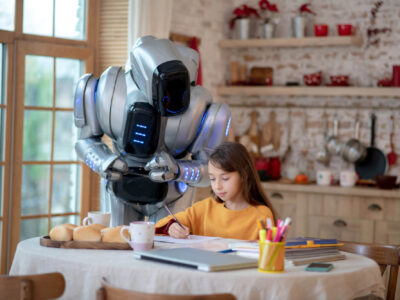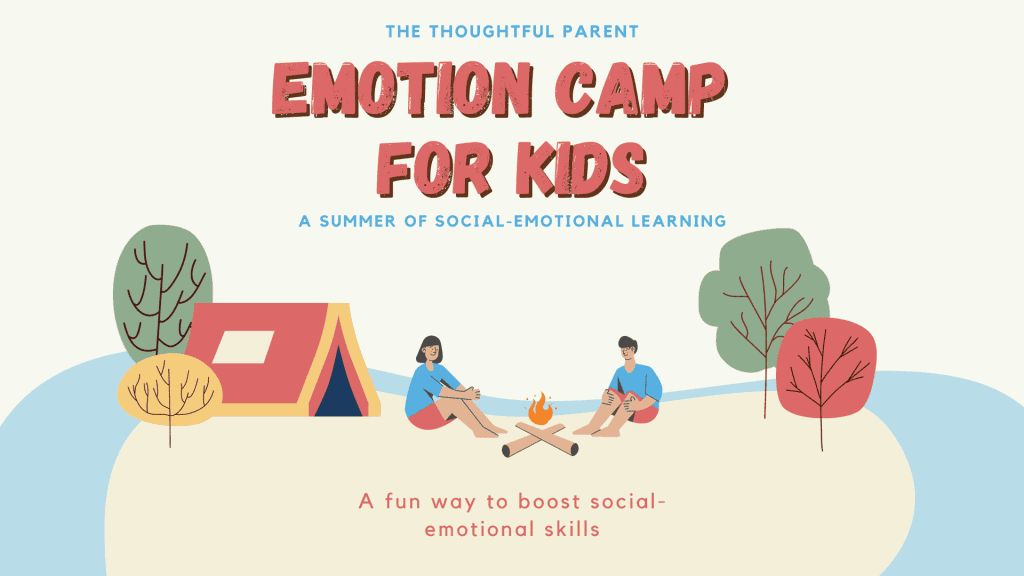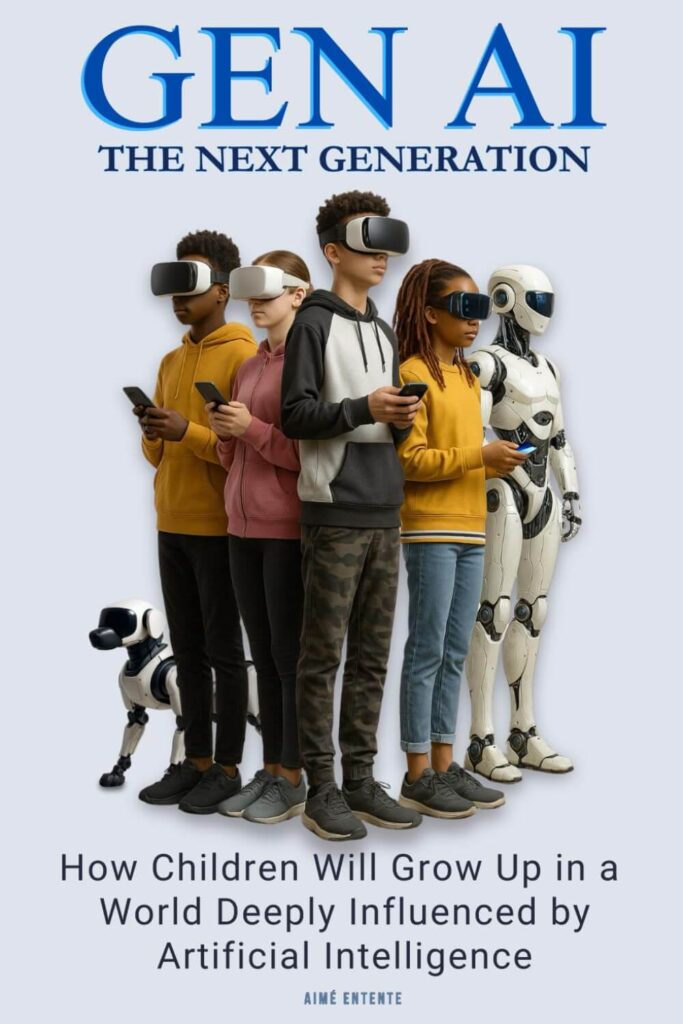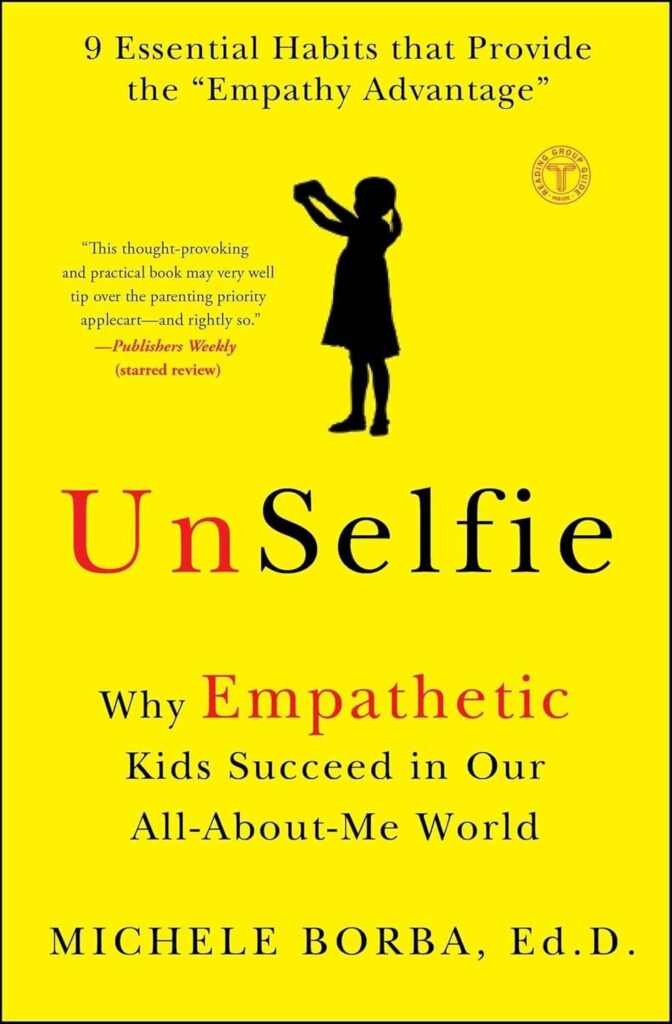Sneak peek: Parenting and artificial intelligence are intersecting more today than ever before and it’s likely only to increase. What does it mean to prepare a child for a life that includes AI?
Artificial Intelligence is here—has it impacted your life yet? You’ve probably heard about the different AI models and some of the things that they could do, but it may not have really impacted your daily parenting life…yet.
Although there are now some AI-driven parenting apps, I think the biggest way the onset of AI may affect us as parents is how we prepare our children for a world that includes AI.

Parenting to prepare our children for AI
One approach might be to help our kids embrace AI. We could encourage them to learn how to use it, and perhaps even get education and training in preparation for a job that might include the use of AI.
Another approach is to consider the skills and abilities that presumably AI would not be able to replicate. Uniquely human skills and abilities that your child can develop that hopefully would not be replaced by a computer.
Or you might consider some combination of both these strategies.
Related reading: The Revealing Reason Why Kids Love Video Games
Why “soft” skills still matter in the age of AI
I think it’s an important idea to consider as this new technology has entered our world and will begin to impact more and more aspects of our lives. I wrote an article a few years ago describing the importance of so-called “soft skills” for career and life success. In the article, I mentioned a study by Google that found that many of their top employees—the ones who get promoted—are not so much the ones who have the most refined or advanced tech skills. They found that the employees who succeeded were the ones who had stronger soft skills. Those are social emotional skills, like cooperating with their coworkers, reading other people’s emotions, and empathizing with others.
Granted, there are probably many of us today who wouldn’t necessarily count success at a company like Google as a life goal for our grown-up child. However, this study indicates that soft skills are still necessary even in high-tech companies. Oftentimes, we think of soft skills as being things that are only useful in terms of careers in the more “caring” occupations like nursing and teaching. Of course, they are essential in roles like those.
Emotion Camp for Kids — hands-on emotional learning activities
I was listening to a podcast recently that highlighted the work of a very interesting scholar who studies the concept of “connective labor.” It’s what many of us would call “emotional labor”—the things that people do to interact with other humans, to support relationships, and to establish a bond. It’s the way a person interacts with you that makes you feel seen and heard. In this work, she highlights the caring professions like nurses, doctors, and teachers. In those occupations, the soft skills of connecting with people on a human level are crucially important. We’ve probably all experienced going to a doctor who had no bedside manner. You know the difference right away, compared to a doctor who takes the time to listen to you, to let you voice your concerns, and to really hear what you have to say.
“Connective” labor and it’s role in an AI world
What this scholar pointed out that I had not considered was that even in professions that are not typically considered caring professions, these same connective labor skills can also be very useful. She describes things like a sales position where if the person selling doesn’t really understand the customer’s needs, or how to really understand the nature of their problem, they’re going to have a much harder time selling a product. That really opened my eyes to the idea that soft skills are still so crucial in so many fields. Outside of a career, we know that soft skills are what make our relationships stronger and our lives ultimately happier.
To me, what all this suggests is that if we want our children to be happier, have successful careers, and meaningful lives, even in the context of AI technology, we need to double down on soft skills. AI will never be able to hold a dying patient’s hand, soothe a crying baby, or comfort a sick friend. The world will continue to need humans who care, listen, work together, and empathize.
Read more about tips for everyday things we can do as parents to foster these skills in our children:
Featured article: Building Emotional Intelligence Through Everyday Interactions with Your Kids
Related Resources





Leave a Reply